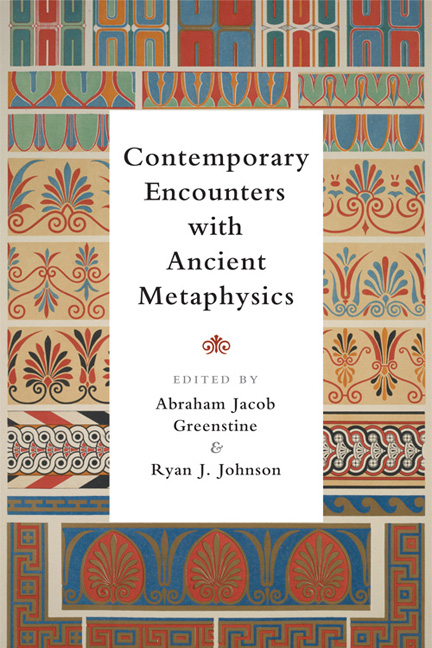Book contents
- Frontmatter
- Contents
- Acknowledgements
- Note on the Text
- Notes on Contributors
- 1 A Thousand Antiquities
- Part I Plato
- 2 The Muses and Philosophy: Elements for a History of the Pseudos [1991]
- 3 Odysseus’ Changed Soul: A Contemporary Reading of the Myth of Er
- 4 Plato's Protagoras: The Authority of Beginning an Education
- 5 Univocity, Duality, and Ideal Genesis: Deleuze and Plato
- 6 “Adjust Your Dread”: Badiou's Metaphysical Disposition
- Part II Aristotle
- Part III Epicureans, Stoics, Skeptics, and Neo-Platonists
- Part IV Postscript
- Index
2 - The Muses and Philosophy: Elements for a History of the Pseudos [1991]
from Part I - Plato
- Frontmatter
- Contents
- Acknowledgements
- Note on the Text
- Notes on Contributors
- 1 A Thousand Antiquities
- Part I Plato
- 2 The Muses and Philosophy: Elements for a History of the Pseudos [1991]
- 3 Odysseus’ Changed Soul: A Contemporary Reading of the Myth of Er
- 4 Plato's Protagoras: The Authority of Beginning an Education
- 5 Univocity, Duality, and Ideal Genesis: Deleuze and Plato
- 6 “Adjust Your Dread”: Badiou's Metaphysical Disposition
- Part II Aristotle
- Part III Epicureans, Stoics, Skeptics, and Neo-Platonists
- Part IV Postscript
- Index
Summary
(The liar) takes advantage of the undeniable affinity of our capacity for action, for changing reality, with this mysterious faculty we possess that enables us to say “The sun is shining” when it is raining cats and dogs.
The philosopher, guard-dog of the truth and of the desire for truth, is committed to alētheia. The sophist, this wolf for as long as there have been philosophers, is committed to the pseudos. Pseudos names, from its origin, and indissolubly, the “false” and the “lie” – the “falsehood,” therefore, of one who deceives and/or deceives himself. It is the ethico-logical concept par excellence. The Sophist of Plato explicitly marks this double bind, which joins the sophistic and pseudos in the eyes of philosophy: the sophist is an imitation, a feral counterfeit of the philosopher, because the sophist chooses the domain of the false, the semblance, the phenomenon, opinion – in a word, all that is not. Philosophy of appearances and appearance of philosophy: sophist simulatordissimulator.
I would like to attempt to pinpoint the pseudos, primarily through Parmenides and Hesiod, in order to determine the manner in which the sophistic lodges itself there, so as to understand, through Plato, how philosophy at its beginnings domesticates the very idea of pseudos, and organizes the place of the sophistic. Place the alter ego in the structure: on the one hand, the pseudos, the possibility of choosing the pseudos, is a condition of the possibility of the very existence of language; in other words, not everyone is a sophist, but in order to speak, there must be sophists. On the other hand, the interpretation of the pseudos in terms of mimēsis blocks every assignment of the criterion and confuses the imputation: “Sage or sophist?,” the Stranger wonders to the end.
One further word about the pseudos before the great ancestors mount the stage. Not on what it signifi es, but on how it signifi es it. Pseudos (like phēmi, fari, which mean the act of pronouncing) has the root *bha, “breathe.” With pseudos it is a matter of the breath in language, of the irreducibility of breath – I could have used the title: “On the breath in language” – the *bha in the logos – in every sense of the word, because, as everyone knows, the sophist does not lack an air.
- Type
- Chapter
- Information
- Contemporary Encounters with Ancient Metaphysics , pp. 13 - 29Publisher: Edinburgh University PressPrint publication year: 2017



